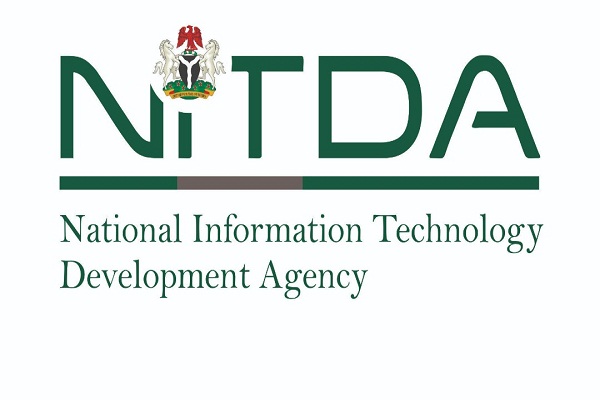Telecom
NITDA, NCDMB Partner to Promote IT Local Content Production

The National Information Technology Development Agency (NITDA) has showed its readiness to partner with the Nigeria Content Development & Monitoring Board (NCDMB) on the promotion of indigenous IT products and services.
Mallam Kashifu Inuwa Abdullahi, director general, NITDA, disclosed this during a virtual meeting with the Executive Secretary of NCDMB.
Mallam Abdullahi affirmed that the Agency and NCDMB has so many potential areas of collaboration ranging from the establishment of information Technology (IT) innovation and incubations hub in strategic locations across the country.
According to him, IT Hub is a platform where Technology, Business, Innovation and Entrepreneurship are nurtured by building pools of both native and evolving talent and footloose IT professionals.
He added that the use of the IT Hubs has created lots of job opportunities, in order to fast track the number jobs the Agency has created through IT, NITDA will partner with NCDMB to create a monitoring and evaluation portal.
“We can partner and develop a monitoring and evaluation portal that can help us get the visibility of the number of people we have trained, monitor their progress and have a figure we can present to the government of our contribution in terms of job creation which is in line with Mr President promise to help lift 100 million Nigerians out of poverty,” the DG said.
Abdullahi stressed that the development of Software and applications is key to the IT growth and development in the nation because the pandemic has shown the need to build the country’s capacity in terms of software development.
“We have some challenges in the software eco development system which we will like to work together to create a structure which will address this challenges and also help the growth of the IT industry”.
He further stated that the Agency during the lockdown has organised an innovation challenge with the aim of identifying solutions that can help curtail the spread of the virus when the pandemic was at its peak time.
During the innovation challenge, three (3) winners emerged and were awarded and funded to develop a working product and services. The first winner developed a Ventilator which is undergoing testing now; the second winner developed a smart decontamination chamber where it can be put at the entrance of a building, it is been fine tune at the moment and the third winner developed an app called my clinic.ng. It is an online platform where patients can be attended to without going to the hospital.
The NITDA DG affirmed the importance of the Virtual meetings stated earlier by the Executive Secretary of NCDMB.
He stated that the virtual meeting has help the Agency conceptualised and executed ground breaking initiatives during the lockdown period.
“During the lockdown is when we came up with the NITDA Virtual Academy, which as we speak now have more than 26,000 Nigerians learning on the platform”. He said.
Abdullahi added that the Agency is thinking of doing more innovation challenge to identify affordable and more suitable virtual platforms for Nigeria.
“Even if we overcome the pandemic, the virtual meeting has come to stay because of its flexibility and how easy it is to collaborate and work together,” he added.
Earlier, The Executive Secretary of NCDMB, Engr. Simbi Wabote said that the Board decided to partner with NITDA to advance the ICT support the board has render to the Nation.
He stated that the board has supported Local ICT companies, procure locally assembled PCs and, utilise MainOne for internet services, use in-house staff developed services and applications, trained a thousand youth and also established ICT centres in secondary school in the six geographical zones of the country.
Telecom
MTN, BUA, Dangote & Other Industry Giants Triumph at NGX Made of Africa Awards

Nigerian Exchange Group (NGX) hosted its annual Made of Africa (MOA) 2025 Awards on Monday, February 4, 2026. The event, held during the NGX year-end celebrations, brought together regulators, listed companies, and market operators such as MTN, BUA, Dangote, Transcorp, to celebrate achievements in compliance, sustainability, and market performance.

In his opening remarks, Dr. Umaru Kwairanga, the Chairman of Nigerian Exchange Limited, said “Excellence in compliance, sustainability, and several other categories recognises the fact that capital market operators and quoted companies must be standards not only in terms of the size of their operations but also adherence to regulations and best practices of corporate social responsibilities.”
He emphasised that the awards serve as a benchmark for excellence. He noted that the 2025 honourees demonstrated significant improvements in branding, customer service, and operational standards despite a challenging economic environment in Nigeria.
Among the evening’s significant winners was MTN Nigeria, which was honoured for its commitment to corporate transparency. The technology giant received the award for Leadership in Sustainability Reporting, emerging as the winner in a category that included Seplat Energy, BUA Cement, and Transnational Corporation of Nigeria PLC.
The award recognised the brand’s adherence to both national and global reporting standards, reflecting its role in advancing environmental, social, and governance (ESG) practices within the Nigerian corporate space.
Tobe Okigbo, Chief Corporate Services & Sustainability Officer, MTN Nigeria, said “This recognition for Leadership in Sustainability Reporting underscores our commitment to transparency and aligning with global best practices.
“As the capital market moves toward greater accountability, MTN Nigeria remains dedicated to demonstrating resilience and faith in the Nigerian economy through comprehensive and standard-compliant reporting.”
The ceremony saw several other major players in the financial sector secure multiple accolades. Chapel Hill Denham emerged as one of the night’s most successful firms, winning in categories including Fund Manager with the Largest Listed Fund Size and Market Operator with the Highest Value of Foreign Portfolio Investment (FPI) Transactions.
Other notable winners included: Cardinal Stone Securities Limited, named Broker of the Year and Equity Trader of the Year, Dangote Cement was awarded Best Issuer in terms of Fixed Income Listings, BUA Cement PLC was recognised as the Most Compliant Listed Company, and Transnational Corporation of Nigeria (Transcorp) PLC received special recognition for Capital Market Excellence in Equity.
Mr. Jude Chiemeka, the Chief Executive Officer of Nigerian Exchange Limited, congratulated the recipients, noting that the market saw a 51% close in the All-Share Index last year, making it the second-best performing market globally. He urged winners and nominees alike to continue striving for excellence to further the aspiration of a $1 trillion Nigerian economy.
Telecom
MTN CIO Urges Africa to Lead Fourth Digital Revolution

Chief Information Officer of MTN Nigeria, and recently appointed Executive, IT Core Design for MTN Group, Shoyinka Shodunke says Africa has a rare opportunity to lead and participate in the ongoing fourth digital revolution, provided it overcomes hesitation, legacy mindsets, and weak leadership.

Shoyinka Shodunke
The call was made known on Friday, at Tech Revolution Africa 2.0, during a keynote session titled “The Digital Economy Forecast for 2026.”
The conference, sponsored by, alongside David Ogebe, Chief Executive Officer of HOH, was designed to connect the full value chain of technology across the continent. It brought together talents, innovators, policymakers, startups, investors, and industry leaders to network, collaborate, discuss the future of technology, and drive innovation across Africa.
Speaking at the event, Shoyinkareferenced Africa’s historical experience with past industrial revolutions, the MTN CIO warned against repeating old mistakes.“Africa was completely missing from the first industrial revolution. In the second, we were only providers of raw materials, and in the third, we were merely consumers.
“Revolutions punish hesitation. When Africa hesitated in the first, second, and third revolutions, we lost out, and history punished us”, he said.
Shodunke stressed that the fourth digital revolution presents a different reality, driven by data, cloud computing, and talent rather than heavy capital investments.
“The inputs today are data, cloud, and talent. The factory now sits in the cloud. For the very first time, Africa has an opportunity not just to participate, but to lead, because the playing field has changed.” He stated.
He identified leadership, rather than capital or talent, as the biggest challenge facing Africa’s digital future. “Our biggest risk is not lack of capital or talent; it is leadership.”
Shodunke said: “This is not a time for comfort or committee meetings. It is a time for bold leadership that is willing to disrupt legacy products, legacy revenues, and even itself.”
Using MTN Nigeria as a case study, he noted that the company has moved beyond basic connectivity into cloud services, fintech, and artificial intelligence.
According to him, connectivity and data have become commodities, and the real value is in building intelligence on top of those commodities, where winners in this digital era would emerge.
He therefore urged African youths and innovators to act decisively.
His words: “History does not reward those who wait to be convinced. The time to act is now. Africa must not be left behind again; this time, we can set the trend for the fourth digital generation.”
While noting the visible growth of the platform, the transformation and revolution that have been carried out within a year, Shodunke commended the conference conveners for building a strong ecosystem for technology conversations in Africa.
Following his keynote session, the MTN CIO was honoured with the Pan-African Technology Leader of the Year award, in recognition of his impact and outstanding contributions to technology development across Africa and his consistent leadership in advancing the continent’s digital ecosystem.
Telecom
X Suffers Global Outage, Millions Barred from Access

Microblogging platform X has suffered widespread outage, leaving millions of users across multiple countries unable to access tweets.

Elon Musk
The disruption began with users in the UK initially reporting issues. Then, in Nigeria, after 1pm, Nigerians also noticed issues accessing X.
In the United States, over 42,000 users flagged similar problems, while more than 45,000 outage reports were recorded in Japan. Users in Canada, Australia, France and Germany also reported difficulties.
Many users said the website became stuck on the X logo or displayed an error message reading: “Something went wrong. Try reloading.” On the mobile app, feeds either failed to load or appeared blank, though prompts to subscribe to X Premium were still visible.
The platform, owned by Elon Musk, has not issued an official explanation.
Unlike other major social media networks, X does not operate a public system status page. Its developers’ platform, however, indicated that “all systems are operational”.
The outage marks the latest in a series of disruptions in recent months. Similar incidents occurred last month and late last year, including one linked to network issues at Cloudflare, which affected multiple websites globally.

 General News1 day ago
General News1 day agoNigeria’s Banks Race to Meet CBN Recapitalisation Deadline Amid Verification Push

 General News1 day ago
General News1 day agoJumia Targets Break-even in 2026 After Strong Q4 Surge

 General News1 day ago
General News1 day agoBOI, MTN Foundation Unveil N1Bn Fund for Women Entrepreneurs

 General News20 hours ago
General News20 hours agoUBA Unveils Diaspora Platform to Connect Global Africans with Investment, Wealth Opportunities

 E-Financial1 day ago
E-Financial1 day agoNo VAT on Land, Buildings and Rent Under New Tax Law — Oyedele

 E-Financial1 day ago
E-Financial1 day agoIs Nigeria Borrowing to Survive or to Build?

 E-Financial1 day ago
E-Financial1 day agoCBN Slams Up to N10m Fine on Banks and Cheque Printers for Security Breaches

 General News13 hours ago
General News13 hours agoLeo Stan Ekeh Foundation, Zinox Group To Invest 10B on 1000 University Tech Scholarships for Indigent Nigeria Wiz-kids


























